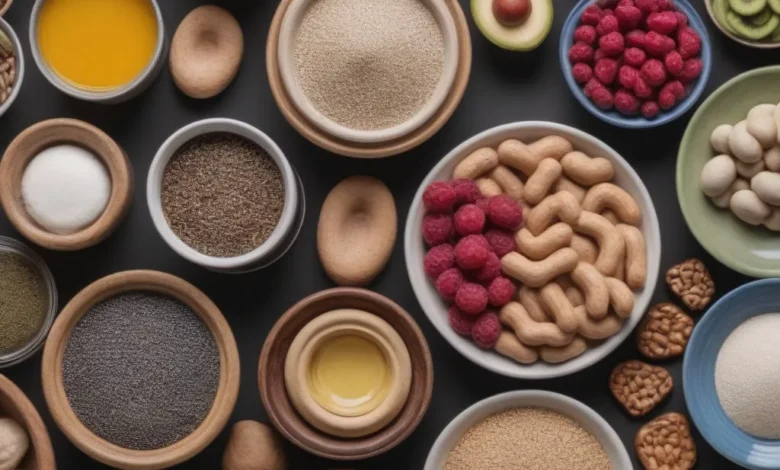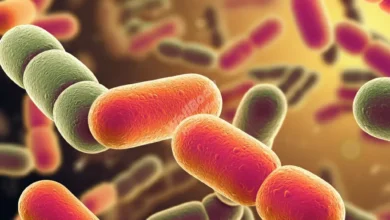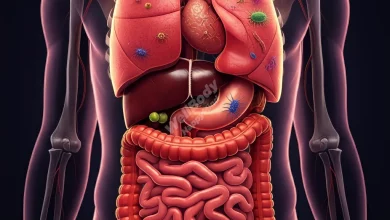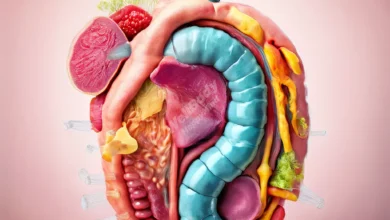Digestive Decisions: Choosing Foods for a Fit Microbiome

In our quest for optimal health, we often overlook the crucial role of our gut microbiome in overall well-being. The foods we choose to consume play a significant role in shaping the composition of our gut bacteria, which in turn influences our digestion, immunity, and even mental health. Making informed digestive decisions can lead to a fitter microbiome and a healthier you.
Understanding the Microbiome
The gut microbiome refers to the diverse community of microorganisms that reside in our digestive tract, playing a vital role in various physiological functions. These microbes interact with our bodies in complex ways, impacting everything from nutrient absorption to immune response. By nurturing a balanced microbiome, we can support our overall health and well-being.
Probiotics vs. Prebiotics
Probiotics are beneficial live bacteria found in certain foods and supplements that can enhance the diversity of our gut microbiota. On the other hand, prebiotics are indigestible fibers that serve as food for the good bacteria in our gut. Consuming a combination of probiotic and prebiotic-rich foods can promote a healthy gut environment.
The Impact of Fiber
Fiber is a crucial component of a gut-friendly diet as it helps maintain regular bowel movements and supports the growth of beneficial bacteria. By including a variety of high-fiber foods such as whole grains, fruits, and vegetables in your meals, you can promote a diverse and thriving microbiome. Some excellent sources of fiber include:
– Whole grains like quinoa and brown rice
– Fruits such as apples, berries, and oranges
– Vegetables like broccoli, spinach, and carrots
Table – Fermented Foods Rich in Probiotics
Here is a table showcasing some common fermented foods that are rich in probiotics:
| Fermented Food | Probiotic Content |
|---|---|
| Yogurt | Lactobacillus |
| Kimchi | Lactobacillus |
| Kombucha | Saccharomyces |
| Sauerkraut | Lactobacillus |
| Miso | Bifidobacterium |
Balancing Macronutrients
A well-rounded diet that includes adequate amounts of carbohydrates, proteins, and fats is essential for maintaining a healthy microbiome. Proteins support the growth of beneficial bacteria, while healthy fats like omega-3s promote anti-inflammatory effects in the gut. Strive for a balanced plate at each meal to nourish both your body and your microbiome.
Hydration and Gut Health
Staying well-hydrated is key to supporting a healthy digestive system. Water helps transport nutrients, eliminate waste, and maintain the mucosal lining of the intestines. Aim to drink plenty of water throughout the day, and consider incorporating hydrating foods like cucumbers and watermelon into your diet for added hydration benefits.
The Role of Polyphenols
Polyphenols are plant compounds with antioxidant properties that can positively impact gut health by promoting the growth of beneficial bacteria. Foods rich in polyphenols, such as berries, dark chocolate, and green tea, can help create a favorable environment for a diverse microbiome. Including a variety of polyphenol-rich foods in your diet can support gut health.
Nurturing a Healthy Gut Environment
In addition to consuming gut-friendly foods, practicing mindful eating habits and managing stress are crucial for maintaining a healthy gut environment. Stress can disrupt the balance of gut bacteria, so incorporating stress-reducing practices like meditation, deep breathing, or yoga can benefit both your mental well-being and your microbiome.
Avoiding Gut Disruptors
Certain factors like antibiotics, artificial sweeteners, and processed foods can negatively impact the balance of gut bacteria. Limiting the intake of these gut disruptors and opting for whole, nutrient-dense foods can help preserve the diversity and functionality of your microbiome. Be mindful of the choices you make to support a healthy gut.
The Power of Diversity
Embracing a diverse diet filled with a rainbow of fruits, vegetables, whole grains, lean proteins, and healthy fats is key to fostering a resilient and balanced gut microbiome. By making digestive decisions that prioritize variety and quality, you can cultivate a thriving ecosystem of gut bacteria that supports your overall health and vitality.
FAQ
Q: Can I take probiotic supplements instead of consuming probiotic-rich foods?
A: While probiotic supplements can be beneficial, getting probiotics from natural food sources like yogurt, kefir, and kimchi is often preferred as they provide a wider range of beneficial nutrients in addition to live cultures.
Q: How quickly can dietary changes impact the gut microbiome?
A: The gut microbiome can respond rapidly to dietary changes, with shifts in microbial composition observable within days to weeks of altering your diet.
Q: Are fermented foods suitable for everyone?
A: While fermented foods can be beneficial for many people, those with histamine intolerance or certain digestive conditions may need to consume them in moderation or avoid them altogether.
Key Takeaways
In essence, making informed digestive decisions that prioritize gut-friendly foods rich in probiotics, prebiotics, fiber, and polyphenols can significantly impact the diversity and balance of your gut microbiome. By embracing a varied and nutrient-dense diet, staying hydrated, managing stress, and avoiding gut disruptors, you can foster a thriving gut environment that supports your overall health and well-being. Remember, a fit microbiome is key to a healthier you.



